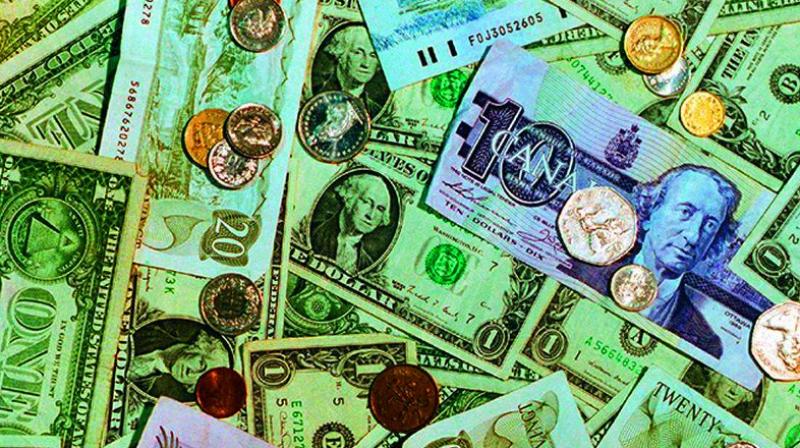Dollar swaps can lower top 500 cos\' interest burden by Rs 7000 crore
RBI had on March 26 conducted first of forex swap auctions raising USD 5 billion promising to pay back in rupees in return.

Mumbai: The forex swap window opened by the central bank can potentially ease the interest costs for the industry and can potentially help top 500 borrowers of foreign funds save up to Rs 7,000 crore as the issuances increase, says a report.
The Reserve Bank had on March 26 conducted the first of forex swap auctions raising USD 5 billion promising to pay back in rupees in return, that softened the rupee-USD forward rates. It has announced another similar issue on April 23.
"The recent softening of the rupee-USD forward rates, if sustained at least in the foreseeable future, is likely to provide a fillip to borrowers that plan to raise foreign currency-denominated capital," India Ratings said in a report on Tuesday.
It said the first round of the three-year swap auction along with a change in the global monetary policy conditions, has moderated the three-year cross-currency swap rates by 0.30 per cent on April 15 from the January 2 levels.
In the same period, the rupee-dollar forward premia moderated by 0.71 per cent, driven by a marked improvement in the dollar liquidity conditions in the domestic market, the report noted.
The agency estimates the interest outgo of the top-500 debt-heavy corporates can cumulatively come down by Rs 4,000 - 7,000 crore, assuming a 0.50-0.75 per cent reduction in the cost of forex borrowings and a 0.5-2 per cent rise in the share of forex borrowings in their outstanding debt.
The RBI swap windows will make available additional deposits of about Rs 69,000 crore to the banking sector, it said, adding however, the swap is unlikely to materially change the aggregate banking system liquidity shortfall.
On the lack of transmission of RBI's policy moves into lending rates for borrowers, it said a weak accretion of deposits has hurt and it is imperative to create substantial quantum of fresh deposits in the system.
For a meaningful traction in deposit growth, both endogenous and exogenous factors such as flow of foreign capital should continue to contribute in a sustainable manner over the near to medium term, it said.
The report pegs non-food credit growth will clock Rs 11.68 trillion in FY20 and the deposit shortfall will be Rs 2.79 trillion even after proceeds from the swap window and an increase in credit-deposit ratio.

